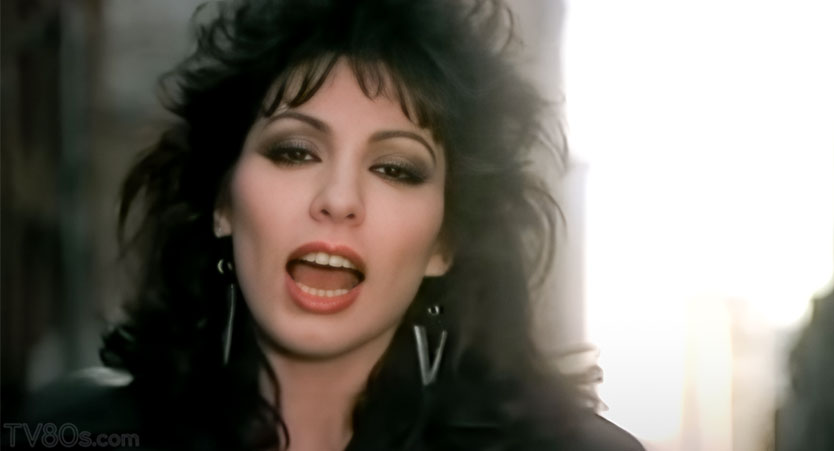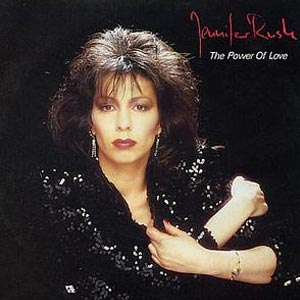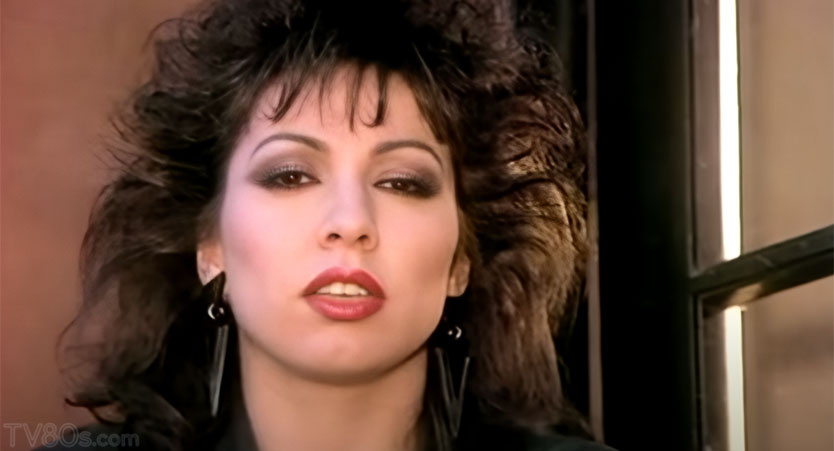“The Power of Love”: Jennifer Rush’s Monumental Ballad of Enduring Devotion
In 1984, American singer Jennifer Rush (born Heidi Stern) released a song that would define her career: “The Power of Love.” Featured on her self-titled debut album, the track showcased her extraordinary vocal range and emotional intensity. Though it had modest success in the U.S. initially, it became a massive hit across Europe—especially in the UK, where it topped the Singles Chart for five weeks and became the best-selling single of 1985 by a female solo artist (keeping a-ha’s ‘Take On Me’ from reaching No. 1). With global sales exceeding eight million copies, it remains one of the best-selling singles of all time.
A Soundtrack for Epic Romance
From the opening bars, “The Power of Love” feels cinematic. The arrangement builds from a soft, intimate beginning to a sweeping, dramatic chorus. Lush synthesizers, bold piano chords, and a steady rhythm section create a soundscape that mirrors the emotional highs and lows of romantic devotion. It’s a textbook example of the power ballad format—designed to stir the soul and showcase vocal prowess.
Rush’s Vocal Mastery
Jennifer Rush’s voice is the centerpiece of the song. Her operatic training shines through as she transitions from delicate verses to soaring high notes with effortless control. The lyrics speak to deep emotional connection and unwavering commitment, anchored by the unforgettable refrain: “’Cause I am your lady / And you are my man.” Her delivery made the song a benchmark for vocalists worldwide.
Chart Performance
Jennifer Rush’s original version of “The Power of Love” saw phenomenal success across multiple international markets. In the United Kingdom, it became the biggest-selling single of 1985 by a female solo artist, spending five consecutive weeks at number one and solidifying her fame throughout Europe. The song also hit number one in countries like Canada, Australia, Ireland, New Zealand, Norway, and South Africa, each reflecting its widespread appeal. In Spain, the Spanish-language version, “Si tú eres mi hombre y yo tu mujer,” soared to the top of the singles chart, remaining at number one for six weeks and becoming one of the most successful singles of 1986 in Spain.
Despite its dominance abroad, the single performed modestly in the United States, peaking at number 57 on the Billboard Hot 100. However, it did manage to find airplay on adult contemporary stations and became a cult favorite over time. The song’s overall global success was extraordinary, eventually selling over eight million copies worldwide—a feat rarely achieved, especially for a debut single.
Music Video
Directed by Michael Leckebusch and filmed in New York City, the video for “The Power of Love” opens with early morning scenes and a tense subplot involving mob-like figures threatening Rush’s partner. A pivotal moment occurs when her partner is involved in a dramatic car crash—an event that heightens the emotional stakes and underscores the song’s themes of protection and devotion. The video ends with her quietly checking on him as he sleeps, closing the bedroom door in a moment of calm after the chaos
Cover Versions That Carried the Torch
The song’s emotional power and universal theme made it a favorite for reinterpretation:
Air Supply released their version in 1985 under the title “The Power of Love (You Are My Lady).” Their soft rock take leaned into romantic tenderness, with a gentler vocal approach and slightly altered lyrics. Though not as commercially dominant as Rush’s original, it resonated with their fanbase and added a new layer of warmth to the song.
Laura Branigan recorded her version in 1987 for her album Touch. Titled simply “Power of Love,” her rendition peaked at #26 on the Billboard Hot 100 and #19 on the Adult Contemporary chart in the U.S. Branigan’s powerful voice gave the song a pop-rock edge, and her emotional delivery made it a standout track in her discography.
Céline Dion famously covered the song in 1993, turning it into a #1 hit in the U.S. Her version, produced by David Foster, became one of her signature ballads and introduced the song to a new generation.
Legacy of a Timeless Ballad
Today, “The Power of Love” stands as one of the most iconic love songs of the 1980s. Whether through Rush’s original, Branigan’s passionate take, Air Supply’s tender version, or Dion’s powerhouse cover, the song continues to resonate with listeners around the world. Its message of love’s strength and vulnerability remains as powerful as ever.
If you’d like, I can break down the lyrical differences between the versions or explore how each artist’s interpretation shaped the song’s legacy.


